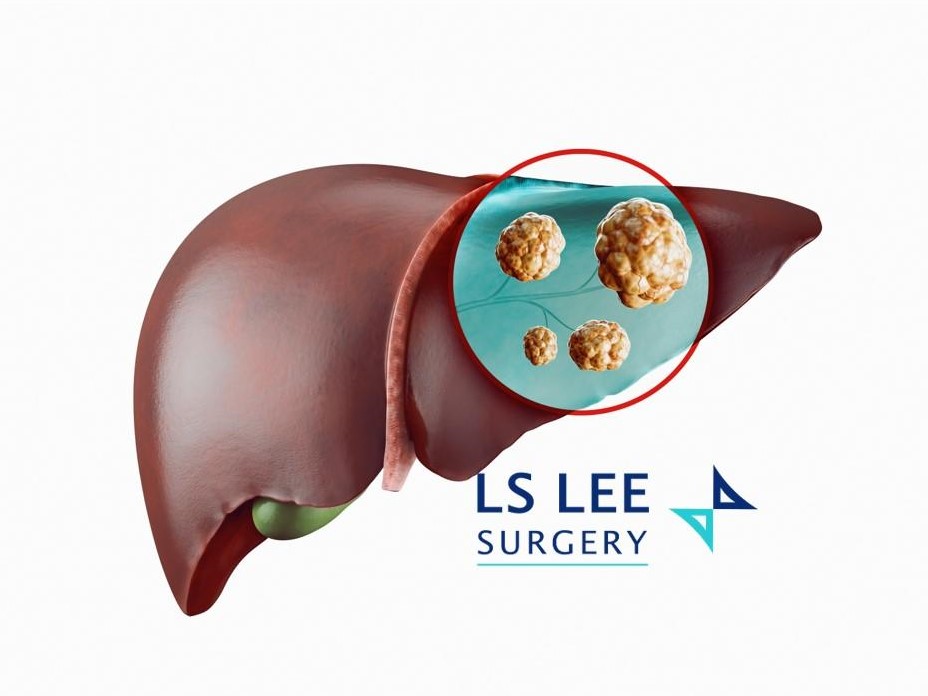Scans such as ultrasound and CT scans are widely used to check for abdominal medical pathology and in health screenings. They often identify liver tumour growths that may not be related to the reason for doing the scan. When a liver tumor is detected, the patient will be referred to a liver surgeon (HPB Surgery) for further workup to ensure the tumor is not cancerous.
What Needs to Be Done:
Thorough Medical History and Clinical Examination:
The liver surgeon will take a detailed medical history to identify risk factors for liver cancer, such as history of hepatitis, drinking history and family history. A clinical examination will be conducted to check for pain in the abdomen, the presence of other masses. Patients should bring the scan showing the liver tumor for the surgeon to review.
Blood Tests:
Further biochemical blood examination is important to look for risk factors. Patients will be screened for the presence of hepatitis and raised tumor markers, including AFP, CA 19-9, and CEA. Basic liver function tests will also be required.
Specific Scans for the Liver:
These scans help further characterize the tumor. The type of scan (ultrasound, CT Liver scan with intravenous contrast, or MRI Liver with intravenous contrast) depends on factors such as patient allergies to contrast, history of kidney failure, and the size of the tumor. Diagnosis of liver cancer are based on scan findings; therefore, use of correct scans is important. Size of the liver tumor does matter for correct diagnosis, It can be challenging to accurately characterise a liver tumor when it is small (usually less than a centimeter). A radiologist can more confidently report the characteristics of a liver tumor when it is larger, as a larger tumor can more clearly express its nature.
Is Biopsy Needed?
Biopsy of the liver tumor is not always necessary. Most liver tumors are diagnosed based on scan findings. Biopsy carries a risk of tumor spread and is not performed as the primary check. It is usually reserved for patients not suitable for surgical treatment and when a diagnosis is required for urgent care, such as starting chemotherapy after primary investigations.
What to Expect After That:
The surgeon will gather information from biochemical and scan investigations. Blood results will help identify risk factors and raise suspicion of cancer. Scans will determine if the tumor is benign or malignant. The liver tumors can be solid nodules or cystic (liquid) in nature.
Benign Tumors Include:
- Hemangioma
- Simple cyst
- Biliary cyst adenoma (has malignant potential)
- Focal nodular hyperplasia
- Adenoma (has malignant potential)
- Liver abscess (infection)
Malignant Tumors Include:
- Hepatoma or Hepatocellular carcinoma.
- Cholangiocarcinoma
- Metastatic tumor (spread from other organs)
The surgeon will advise on the results and provide the correct treatment options. Liver cancer originating from the liver, such as hepatocellular carcinoma and cholangiocarcinoma, requires surgical treatment when it can be done safely. Occasionally, endoscopy with gastroscopy and colonoscopy may be necessary to identify the primary cancer source if liver cancer is suspected to have spread from other organs, such as the stomach and colon.
Small Tumors and Tumors with Non-Specific Characteristics:
When the liver tumor remains small and non-specific despite the use of IV contrast CT scans or MRI scans, and cancer cannot be confidently ruled out, the patient will be advised to have a follow-up scan at a later date.
Conclusion:
Discovering an incidental liver tumor can be distressing. The next steps should include a detailed medical history, clinical examination, blood tests, and specific liver scans to determine if the tumor is benign or malignant and guide treatment options. At LS Lee Surgery, our liver specialist is committed to helping you with accurate diagnosis and treatment.







